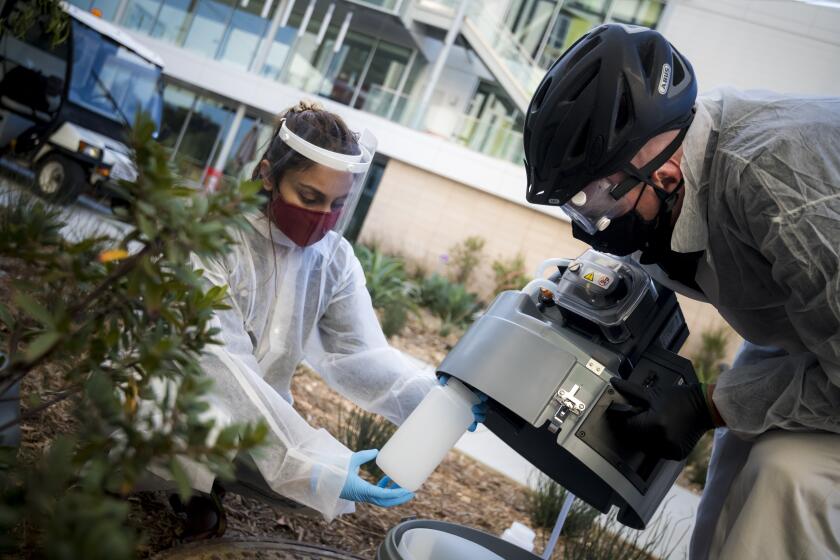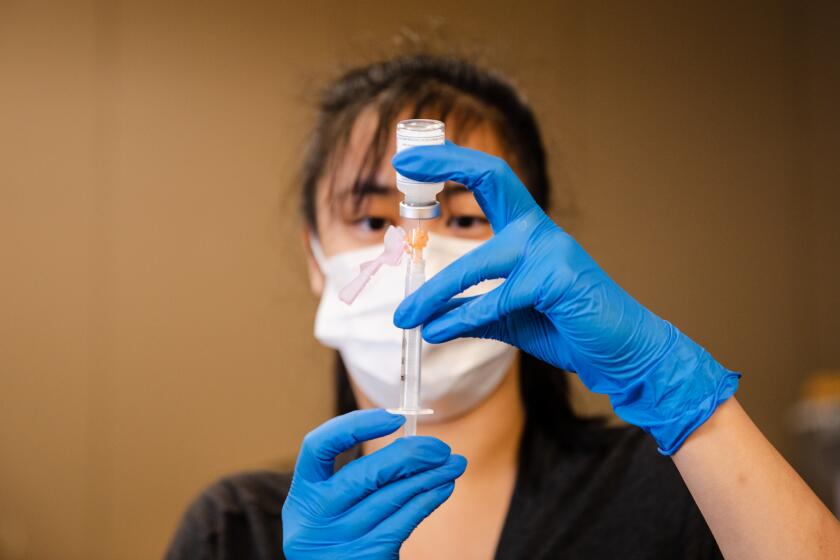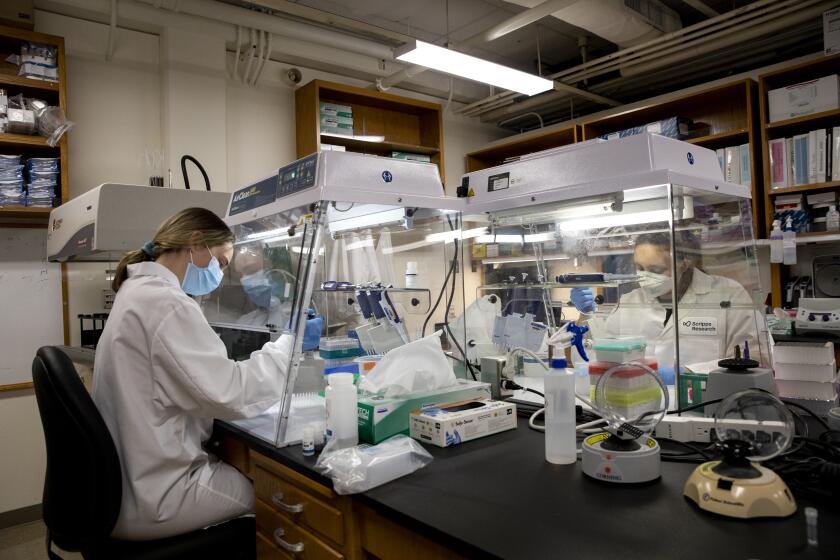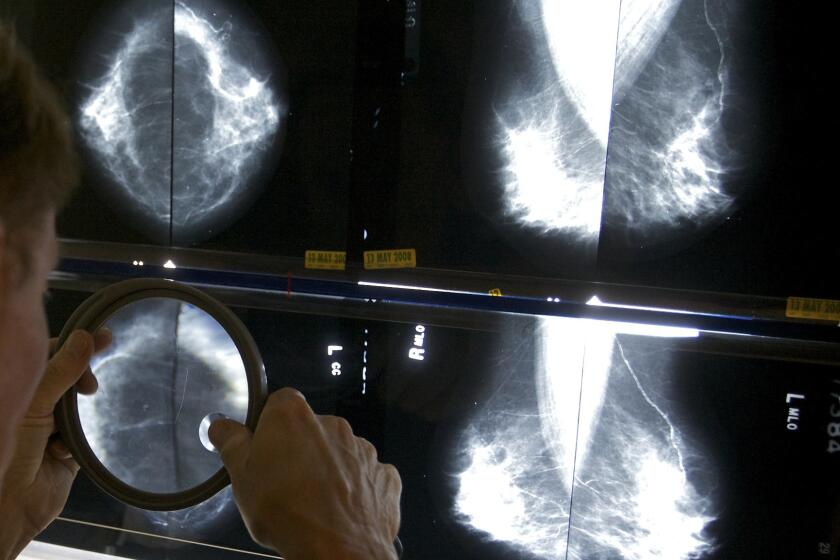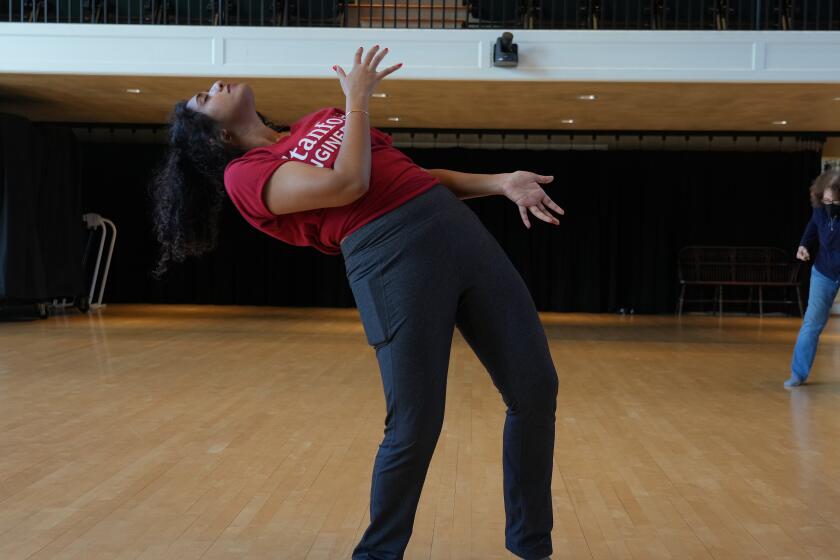Vax facts: San Diego researchers debunk 7 common COVID-19 vaccine myths
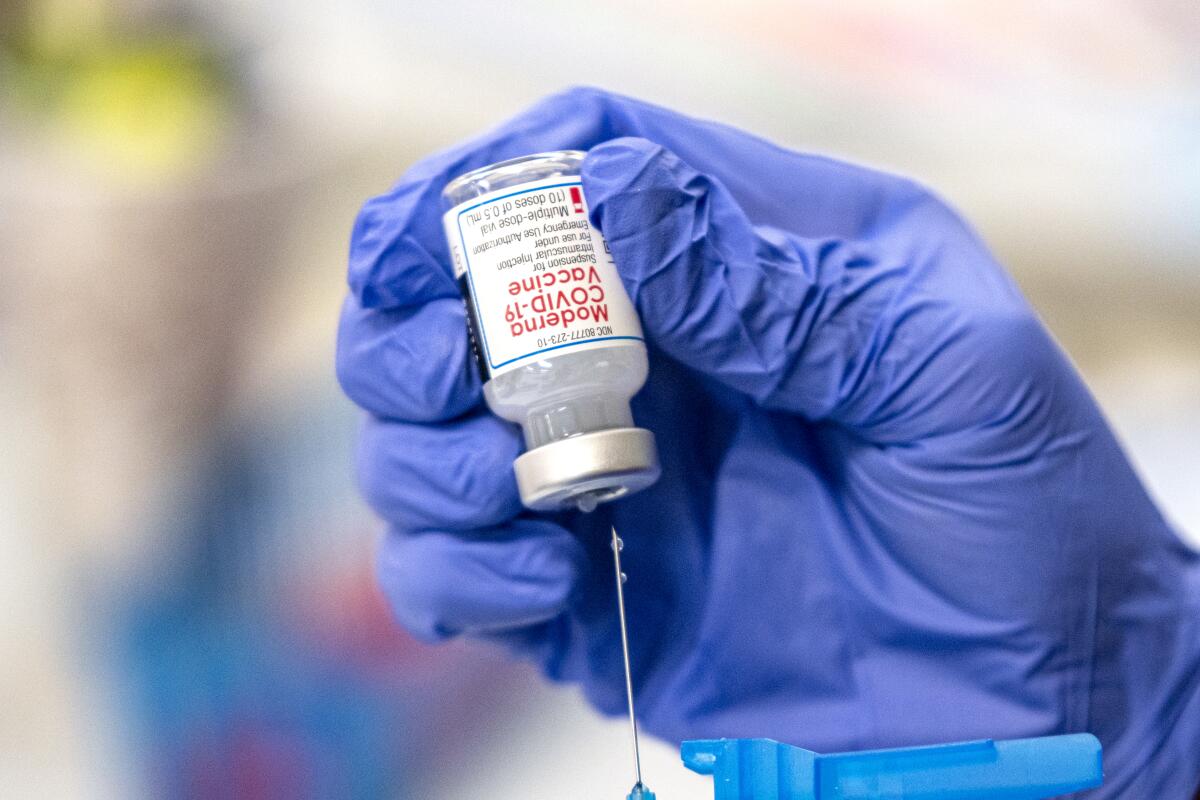
Here’s a guide to help you separate vaccine fact from fiction
Feel like you’re drowning in information about coronavirus vaccines? We can’t blame you.
Keeping track of the latest science can feel like a full-time job. That’s because researchers are still learning more about COVID-19 vaccines, such as exactly how long the immune responses they spark last and how well different vaccines fare against viral variants.
But not everything’s still an open question. There are plenty of things scientists know to be true about the vaccines — and others that simply aren’t.
Here’s a breakdown to help you separate vaccine fact from fiction.
Myth: COVID-19 vaccines are experimental and untested.
Fact: Scientists didn’t just whip up these vaccines in the lab and hope for the best. Researchers tested them in a series of clinical trials to make sure they were safe and effective — as they would any drug. About 200 million people in the U.S. have gotten a shot, and public health officials are closely monitoring vaccine safety and effectiveness, even tracking rare illnesses that may have nothing to do with the shots. On Monday, the Food and Drug Administration officially approved Pfizer’s vaccine after reviewing all the available evidence. More approvals could soon be on the way, as Moderna applied for FDA approval in June and Johnson & Johnson plans to later this year.
Myth: The Moderna and Pfizer vaccines alter your DNA.
Fact: That’s not even possible, says Dr. Mark Sawyer of Rady Children’s Hospital, an infectious disease expert who served on the advisory panels that recommended the FDA authorize both vaccines. Both vaccines use a molecule called messenger RNA that carries a snippet of genetic code from the coronavirus, which triggers an immune response against the spike protein, the molecule that allows the virus to latch onto your cells and slip inside them. But the vaccine doesn’t suddenly and inexplicably burrow its way into your genome — or even come into contact with your DNA.
“There’s no biological reason why that should be happening,” Sawyer said. “And, again, if that was going to cause a problem, even if it happened, we would know about it.”
Myth: Vaccine side effects are worse than COVID-19.
Fact: Most vaccine side effects are mild — think an achy arm or chills. But there have been rare cases in which people have had severe blood clots; muscle paralysis and weakness; or myocarditis, inflammation of the heart muscle.
For context, some of these more severe side effects show up in fewer than 1 out of every 100,000 people. Sawyer points to an Aug. 10 report from the Centers for Disease Control and Prevention showing that the number of side effect cases are dwarfed by the thousands of infections, hospitalizations and COVID-19 deaths the shots likely prevented.
“You are something like a thousand-fold more likely to end up in the hospital from COVID than you are to end up in the hospital with a side effect from the vaccine.”
Myth: You’re better off getting infected and having a “natural” immune response.
Fact: While people who have had COVID-19 can have strong immune responses, the level of protection they get varies greatly from person to person, according to Dennis Burton, an immunologist and vaccine expert at Scripps Research. Part of the reason is that people who had mild or asymptomatic infections are less likely to form a strong immune response. By comparison, the vaccines have been designed and proven to spark immunity across a wide range of people. And natural infection comes with the risk of hospitalization and death as well as lingering side effects researchers still don’t fully understand.
“If you look over a large population, you’re definitely going to get better protection with the vaccine than you are just letting everybody get infected,” Burton said.
Myth: The vaccines will make you infertile or harm your fetus if you’re pregnant.
Fact: Miscarriage rates among vaccinated women are no different than those among the general population, according to a CDC statement released Aug. 11. Also, vaccinated mothers can pass on immunity to babies by breastfeeding, which transfers virus-fighting antibodies through milk. In contrast, pregnant women who do get COVID-19 are more likely to end up in the intensive care unit or on a ventilator than women in the same age range who aren’t pregnant.
“There was not a higher risk of stillbirths, there was not a higher risk of miscarriages. There was not any difference in fertility rates,” said Dr. Cynthia Gyamfi-Bannerman, UCSD Health’s director of obstetrics, gynecology and reproductive sciences. “When you put all of those together — including the increased risk pregnant people face when they get infected with COVID — it becomes very clear that vaccination is the safest thing.”
Myth: If you’ve had COVID, there’s no point in getting vaccinated.
Fact: There’s both lab-based and real-world evidence that shows previously infected people who get vaccinated essentially supercharge their immune response. One study by researchers at Rush University in Chicago shows that people who got a single dose of Pfizer’s vaccine after a previous case of COVID made more powerful antibody responses than people who’d never been infected and got both Pfizer shots. And a CDC report release in early August shows that Kentucky residents who previously had COVID-19 and didn’t get vaccinated had more than twice the odds of getting reinfection compared with those who’d gotten their shots.
“You will end up, probably, with some of the strongest immunity out there,” Burton said.
Myth: You’re better off waiting for a future vaccine that’ll work better than what’s currently available.
Fact: It’s true that vaccine makers are fine-tuning their designs to work better against viral variants. But there’s plenty of evidence the current versions are safe and highly effective at preventing COVID-19 hospitalization or death. That makes waiting for a future vaccine during a surge a risky strategy.
“If I could magically make a new version of the vaccine tomorrow, yes, I would wait until tomorrow or next week. But who knows how long it’s going to take for those to come out?” Sawyer said.
“In the meantime, we’ve got COVID going wild.”
Updates
10:44 a.m. Aug. 23, 2021: This story has been updated now that the FDA has approved Pfizer’s COVID-19 vaccine.
Get Essential San Diego, weekday mornings
Get top headlines from the Union-Tribune in your inbox weekday mornings, including top news, local, sports, business, entertainment and opinion.
You may occasionally receive promotional content from the San Diego Union-Tribune.


